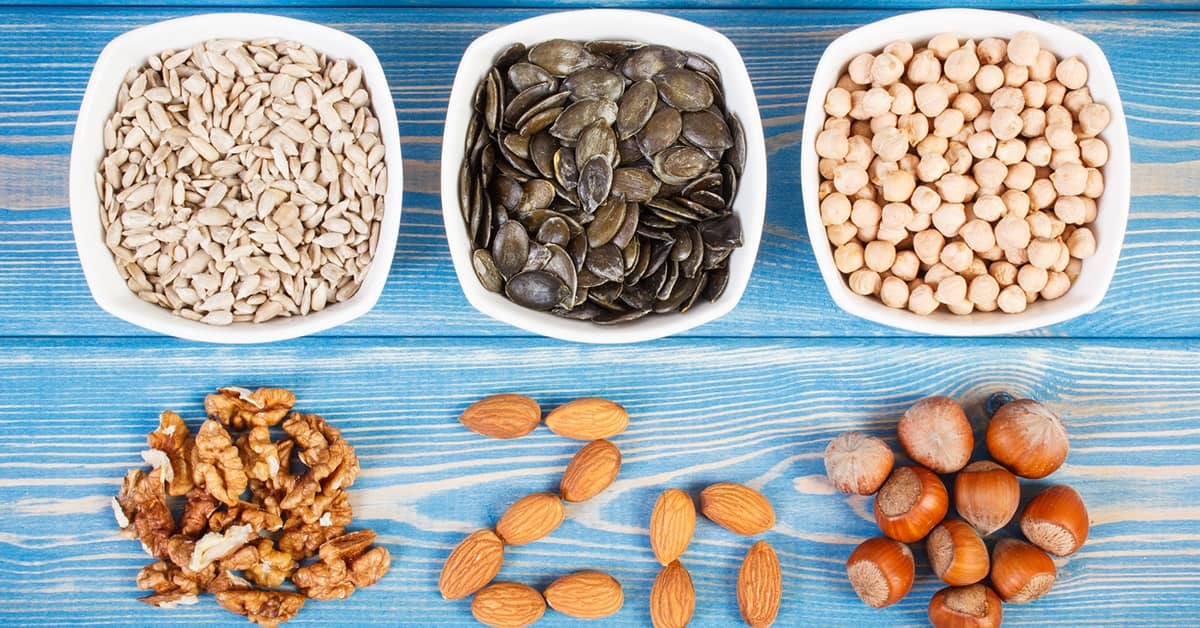
And if you don’t take advantage of those simple steps, it’s likely your immune system will begin to malfunction and you will develop runaway inflammation.
Inflammation can, in no uncertain terms, shorten your life and make what's left of it a misery. And one, simple mineral can help prevent that. . .
The immune system is sort of the neglected middle child of conventional medicine – and likewise neglected by most of the public. As a publisher of health information, I can tell you it’s hard to get people excited about it. No one wakes up in the morning with the first thought, “I’ve got to do something to support my immune function.”
They should.
Consider this: One of the most important causes of cancer is old age. The older you get, the more likely you are to get cancer. And one of the reasons is that a young person has much stronger immunity and simply fights cancer off. Seniors, with their battered, worn-out immune systems, lose the capacity to do that.
And to keep your immune cells behaving properly, there's one particular mineral that is crucial. Unfortunately, 40 percent of older people are short of this nutrient. That deficiency warps the immune response in ways that make you more vulnerable to diabetes, cancer, heart disease and autoimmune diseases.
It can also rev up your chances of going blind as you get older.
The mineral in question – zinc.
Mineral Shortage
Researchers at Oregon State University have found that getting enough zinc is particularly important for seniors – you need more with the passing years because not only are most American diets low in zinc, but the aging human body gradually loses its ability to absorb this important mineral.The lab tests in Oregon found that aging derails the body's zinc transporters that are supposed to convey zinc to the various organs where it’s needed.1 The dysregulation of zinc transport leads to increased inflammation – even when you eat a diet generally considered adequate in zinc.
In their investigations, the scientists had to give older animals ten times the supposed dietary requirement for zinc to damp down their inflammation so that it retreated back to the safe levels of younger animals. (Don’t try this at home. I’ll discuss the ideal dosages for humans in a moment.)
"The elderly are the fastest growing population in the U.S. and are highly vulnerable to zinc deficiency," warns researcher Emily Ho, Ph.D. and director of an endowed center that studies nutritional issues and prevention. She continues, "They don't consume enough of this nutrient and don't absorb it very well."
Studies by Ms. Ho have also demonstrated that, along with firing up dangerous levels of inflammation, zinc deficiency also damages DNA.2 "Some inflammation is normal, a part of immune defense, wound healing and other functions," she says. "But in excess, it's been associated with almost every degenerative disease you can think of, including cancer and heart disease. It appears to be a significant factor in the diseases that most people die from."
Research around the world confirms that when you miss out on zinc, your health can misfire:
- Your heart health suffers: Studies in Germany indicate that as your zinc levels drop, your heart muscle becomes more vulnerable to damage from oxidative stress. The German scientists point out that heart tissue needs extra anti-oxidant protection because it is continually exposed to large amounts of injurious free radicals.3
- You need zinc to keep your eyesight: Research in England shows that you can lower your risk of blindness from age-related macular degeneration by taking zinc supplements with other antioxidants and copper.4 [NOTE: From the research I’ve seen, few people need to supplement with copper.]
- A zinc shortage makes cancer more likely: Tests at the University of Texas at Arlington demonstrate that zinc helps the body kill off cancer cells.5
- A lack of zinc endangers the liver: Australian researchers have found that zinc helps the liver resist inflammation that leads to cirrhosis. They conclude that their data “highlights the potential for zinc to be used as a simple and effective treatment against acute and chronic inflammation in the liver.”6
Best Way to Take Zinc
If you decide to take zinc, the Oregon researchers say don’t take more than 40 milligrams a day. At high levels, zinc interferes with the body’s absorption of other nutrients.This recommendation pretty much comports with what I’ve seen elsewhere in my years of study. But it’s an individual matter, and the best course is to have a nutrition professional assess your need for zinc with a blood test.
There are few people for whom 40 mg will be too much. But there are quite a few people who can do with more – and you won’t know that without a blood test.
Dr. Ho recommends that all older people take a supplement that includes the zinc RDA – 11 milligrams for men and 8 milligrams for women. (Too low, in my opinion, for almost all seniors.) Foods rich in zinc include meat and seafood. Oysters are famously rich in zinc. But you don’t get much from vegetables or grains. So if you’re a vegetarian, you certainly need to take a supplement.
The Oregon researchers point out that most doctors don’t ask for a blood test to find your zinc levels. Plus, the test for zinc is not every accurate even if they do order it for you. But it’s the only thing we’ve got.
BTW, zinc is not a magic bullet to heal your immune system. It’s one of many things we need to do. But it’s a great place to start because it’s inexpensive and it’s sure not controversial.
